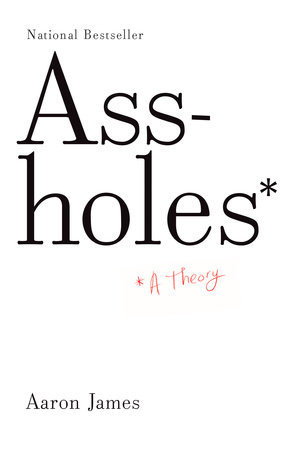How to surf like an asshole, Basics: Part 1
A proper appreciation of the asshole surfer requires a nuanced sense of wave etiquette. We begin with the first rule of considerate surfing: whenever possible, get out of the way.
That is to say, the paddling surfer is to do everything in his or her power not to obstruct the surfer who is riding a wave. This rule is presupposed, for example, by the agitated surfer’s complaint, “Hey bud, get the fuck out of the way; paddle into the foam!” By which he means that his trajectory while riding the wave was unnecessarily interrupted by a paddling surfer who had ample opportunity to take a less disruptive, albeit much less convenient, course through the breaking part of the wave. Although that course often brings an unpleasant underwater rattling, in some cases complete with a somersault and gasps for air, the agitated surfer assumes that the paddling surfer shirked his duty to accept an unpleasant outcome, and that he instead shifted the burden of avoiding a collision upon the surfer riding the wave.
Skilled surfers take their lumps more or less automatically, having anticipated when they might obstruct the oncoming surfer’s chosen line. Trouble normally arises in cases of *questionable competence.* Beginning surfers often have a fair estimation of their limited powers and resolutely avoid crowded line-ups in which they risk getting in the way. It is a vast ocean, and they rightly find a place to practice away from the more desirable surfing areas. After a certain measure of capability is attained, however, the surfer almost invariably overestimates his (or her) progress, and chooses to venture forth into waves that are both more desirable and in greater demand. This surfer, almost invariably, finds himself in someone’s way.
When the disruption is consequential, the obstructed surfer often makes a show of complaint, with an angry splash of water, a flashing, “stink-eyed” glare, or an impromptu, quasi-instructional retort such as: “Look man, you’ve got to fucking paddle into the foam.” The paddling surfer will often reply, “Whoa, bro; I *couldn’t* get out of the way.” Interestingly, while this claim would usually be false of a surfer with adequate anticipatory skills, it is often quite *true* of the surfer of shaky competence. What the inexperienced surfer won’t realize is that his inability is due to his lack of wave knowledge and not to the limits of hydro-physical ambulatory possibility. This is yet another way he fails to grasp the skills he lacks.
So much is often the product of ignorance or largely innocent delusion. We venture into asshole territory when the surfer of questionable capability, perhaps emboldened by a story of his entitlements, asserts the full range of rights normally afforded to surfers above a certain competence threshold. He is assertive instead of just staying out of the way.
In very good waves, with a well-defined area for initially procuring a wave, surfers often form a line. When your turn comes up, the approaching wave is your wave; other surfers are expected to yield the right of way, subject to enforcement by angry complaint and, if need be, threats of violence.
Sitting in line may require only modest abilities. To actually *catch and ride* an approaching wave, however, may call for considerable skill. For the surfer of shaky competence, then, the following situation arises. He waits in line, securing what would normally be his turn. He then fails to successfully catch and ride the wave, either by failing to secure appropriate position, or by falling off in what may be a steep take off. While he may occasionally succeed, his rate of success will be too low to provide even modest assurance to the competent surfers in wait, who must pass up an opportunity to surf what may be a very desirable wave.
The following exchange may then ensue:
Skilled surfer: “Bro, you keep eating shit. I’m going next time!”
Unskilled surfer: “But I waited my turn; it is my wave.”
Skilled surfer: “No matter; I didn’t travel 10,000 miles to watch you eat shit over and over again on perfect waves.”
Unskilled surfer: “Whatever. It is my wave. I can do as I wish when it is my turn. If I eat shit, that is my right.”
Skilled surfer: “No, you can eat shit all you want only *where the waves are bad*–where you aren’t asking us to pass up a chance at getting the barrel of the trip. So, seriously, just get out of the way.”
The unskilled surfer may end this exchange by calling the skilled surfer an asshole. Under the present circumstances, however, the skilled surfer stands in the right: it is unreasonable for the unskilled surfer to ask the skilled surfer to pass up a valuable wave-riding opportunity when his chances of actually riding the wave are slight.
Immanuel Kant may disagree with this verdict. Kantian views that assign rights according to a norm of equal freedom without any reference to prospects for benefit or harm would disagree. I suggest that the situation presents a counter-example to those analyses: prospects of benefit make all the difference to what assignment of wave-riding rights and freedoms is fair. (Alas, no Kantians I know of are surfers; nor, I believe, was Kant.)
The case also shows, as a further consequence, that expected *opportunity costs* shape property rights: my right to use something without interference (to ride a wave alone) depends on the prospects of benefit I can reasonably ask you to give up (the chance that you’d successfully ride the wave instead).
Lest this seem a mere delicacy of rights theory, note that it has potentially far reaching consequences in larger society. It means, for example, that my right to spend my pre-tax income as I see fit (as specified by tax rates) depends on what other people have to give up for me to enjoy this privilege. So if we know that society can effectively relieve someone’s condition of undeserved material destitution, then I have no right of property against being taxed for the sake of poverty relief. My property rights aren’t *outweighed* by further moral concerns. Rather, I have no right against the suggested poverty alleviation measures in the first place.
In that sense, social justice rules, on land, and in the waves.

